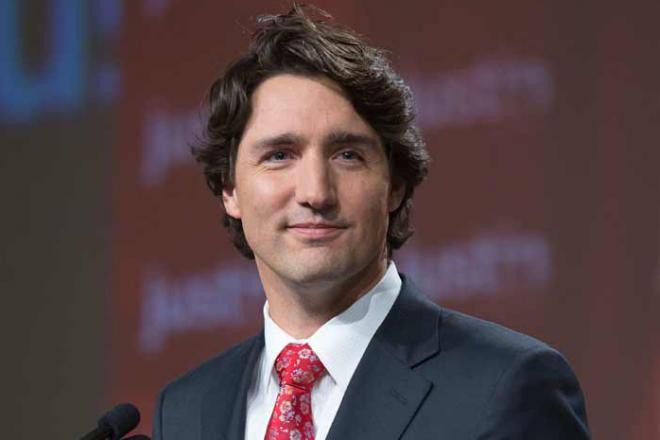Meet Canada's Man With A Plan: First Step To Move Out Of The U.S Clutch In Syria
Justin Trudeau

NEW DELHI: Canada’s general elections concluded this week with a landslide victory for the Liberal Party and their leader, Justin Trudeau. The result brought an end year of almost ten years of the Conservative Party of Canada (CPC) and Prime Minister Stephen Harper.
Trudeau, son of former Canadian Prime Minister, Pierre Elliot Trudeau, was an unlikely winner. Although Trudeau won the Liberal party leadership race, beating Michael Ignatieff, and his interim replacement, Bob Rae, many doubted that he had the political wisdom or foresight to win the elections. Trudeau, only 43, had entered politics only in 2008. He had previously been a teacher an activist. Media coverage focussed more on his great hair and good looks, and less on what his party’s election campaign promised to deliver.
If the world media had been paying attention, it wouldn’t have come as a surprise when Trudeau announced that Canada will be withdrawing its fighter jets from the US-led mission against Iraq and Syria.
“I committed that we would continue to engage in a responsible way that understands how important Canada’s role is to play in the fight against Isil, but he understands the commitments I’ve made about ending the combat mission,” Trudeau said at a press conference.
Canada currently has six CF-18 fighter jets taking part in the US-led mission. Canada also has 70 troops training Kurds in Iraq, although Trudeau has previously indicated that this engagement will continue.
The White House in a statement said: “The two leaders agreed on the importance of deepening the already strong United States-Canada relationship and committed to strengthening the countries’ joint efforts to promote trade,combat terrorism, and mitigate climate change.”
Despite announcing that Canada would be withdrawing its jets, Trudeau has vowed to improve US-Canada relations, which had taken a hit during Harper’s tenure.
However, speaking at a rally in Ottawa on Tuesday, Trudeau broadened the scope of Canada’s foreign policy positions. “I want to say this to this country’s friends around the world: Many of you have worried that Canada has lost its compassionate and constructive voice in the world over the past 10 years. Well, I have a simple message for you on behalf of 35 million Canadians. We’re back.”
Additionally, the Liberal Party has promised to boost spending, raise taxes on the wealthy, reform the voting system, legalise marijuana and take in more refugees.
The Liberals have said that they would accept a series of budget deficits to fund major infrastructure spending that would in turn boost the economy -- a major departure from the Conservatives position.
A tax hike for Canada’s richest 1 percent is also a promise, justified as a measure to pay for a tax cut for the country’s middle class. Anyone who earns more than $200,000 would see a tax hike of 4 percent, and anyone earning between $44,701 and $89,401 would see a cut of around 1.5 percent.
The Liberals have also vowed to reform the voting system, seeking to replace the current first-past-the-post voting system, which has been unpopular with liberal Canadians as votes get split along three progressive parties. Proportional representation seems to be the preferred system for the Liberal party and voters in Canada.
Trudeau has declared that he, on winning, will legalise marijuana -- arguing that the drug has needlessly left many Canadians with criminal records and cost the government too much in law enforcement.
The new Prime Minister has also vowed to take in more refugees into Canada, saying that the Liberals would support the immediate processing of 25,000 Syrian refugees and a $100 million investment into helping Canada resettle and process refugees more quickly.



